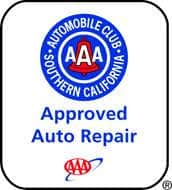If you’ve ever had to jump-start your car or even worse, had to wait for a towing company to come out and tow your dead car away, then you know how important a good car battery is. Or, if you’ve ever had to replace a dead car battery, then you probably already know that it can be a real pain. Not only does it take time and effort, but it also costs money. And since the average car has at least two batteries, replacing them regularly can really add up.
What is a Car Battery?
A car battery is responsible for starting your vehicle. When it dies, you won’t be able to get started until you replace it. This can be a big problem if you’re stranded somewhere without access to a mechanic. Fortunately, there are some things you can do to extend the life of your battery. You’ll need to keep an eye on how much power your battery is drawing from the alternator. It’s not uncommon for a car to draw about 15 amps when fully charged. That means that your battery will lose approximately 3 volts per amp. So, if you have a 12-volt battery, it will drop 6 volts after each amp of current is drawn.
The amount of power being drawn by your battery depends on several factors including:
1) How fast you accelerate (or decelerate)
2) How far do you drive
3) Whether or not you use cruise control
4) Whether or not you have air conditioning
5) Whether or not you run accessories like lights, wipers, etc.
6) Whether or not you turn off the radio
7) Whether or not you leave the headlights on all night
8) Whether or not you let the engine idle while parked
9) Whether or not you allow the engine to cool down before shutting it off
10) Whether or not you start the car in cold weather
You should always check the voltage level of your battery before you go anywhere. If it reads low, you may want to consider adding more juice. But don’t overdo it. Too many extra amps can damage your battery. Also, make sure that the positive terminal is connected to the correct post on the battery.
How does a car battery affect the performance of your vehicle?
When you first put a new battery into your car, you might notice that it takes longer to start than usual. This is because the battery needs to charge itself. After this initial charging period, your battery should perform just as well as any other one. However, if you find yourself having problems with your starter, your battery could be the culprit.
Here are some common symptoms that indicate that your battery is bad:
1) Your battery doesn’t hold its charge very long
2) Your battery drains too quickly
3) Your battery isn’t holding a full charge
4) Your battery doesn’t provide enough electrical energy to start your car
5) Your battery fails to start your car after sitting for a few days
How often should I change my car battery?
You might be wondering why changing your car battery is important. Well, the simple answer is that it affects your vehicle’s performance. In other words, if your battery dies, your car won’t start. This means you’ll have to spend some extra time or money fixing it. As mentioned above, you can extend the life of your car battery by keeping track of how much power it draws. If you see that your battery is losing capacity, it’s best to replace it sooner rather than later.
If your car battery starts acting up, it’s time to replace it. There’s no reason to wait around hoping that it will fix itself. Even though they’re relatively inexpensive, car batteries can be expensive to repair. So, if you find yourself needing to replace yours, look for a reputable dealer who offers free estimates. They’ll help you decide whether or not it makes sense to buy a new battery.
When you’re in need of a jumpstart, contact Davies Auto Care. We know what it takes to get your engine running again. Don’t let your battery die before it’s time. Call us today to schedule an appointment for comprehensive auto diagnostics.





